Fun and strange things the real Classica did that are in the ClassicaLoid Series! Powered by onitengu
Don't wanna be here? Send us removal request.
Text


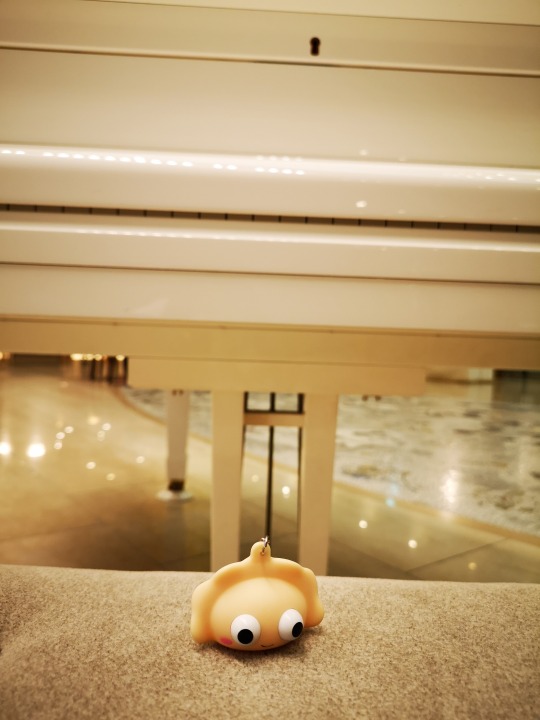

Gyona-kun is real, too.
Say hello to the adventure of "Chaozu-kun" (that's it's real name). I bought him today and he will from now on travel, where I travel.
I think he is scary and kind of ugly, but it's not his fault. He deserves to see the world und the world deserves to see him!
What do you think? ^^
8 notes
·
View notes
Text
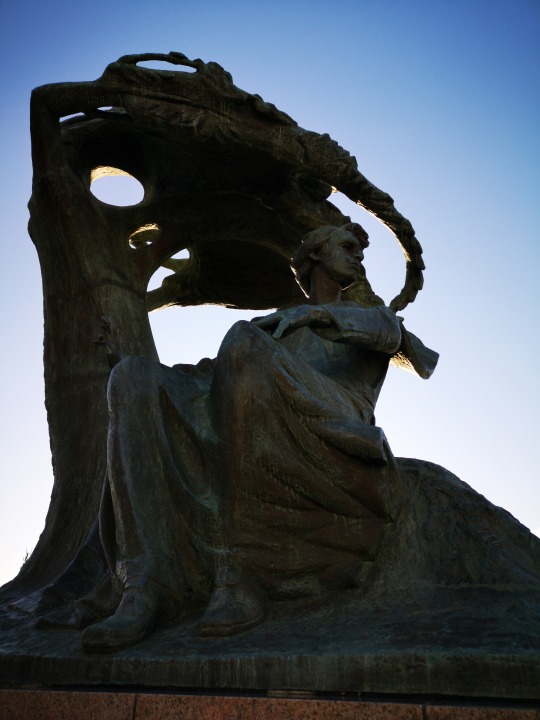
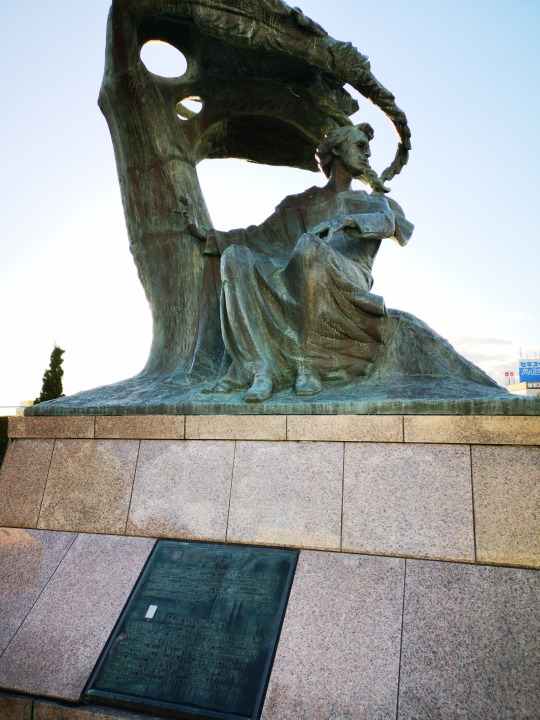



I'm in Hamamatsu right now~
My friend and I stay in the Okura Act City Hotel (yeah... The building were Acre and Bach are living😊) It's a 4 star hotel, very expensive, but also very classy. I will show some more pictures later.
First I like to show you the Chopin statue on Chopin hill (it's directly at the side of the Hotel.
And there are two other pictures showing, how tall the building is ^^
My friend and I have a room at the 33 floor it's stunning. I hope you like it. Next time will be more ~
13 notes
·
View notes
Text
Thanks for 100 + 8 Follower!^^
I’m not very active at the moment, because of the heat and no motivation to read, at the moment ... I’m sorry ... but I think after summer it will be better.
I was stunned to see that I reached 100 Follower, and I’m very happy! Thank you! I was thinking to do something special, but I’m not sure what to do? ... That’s why I like to show you, how my biography collection is growing!

The books look so nice, but my space is limited and I’m not sure how many books will fit on my closet xD
Let’s take a closer look!
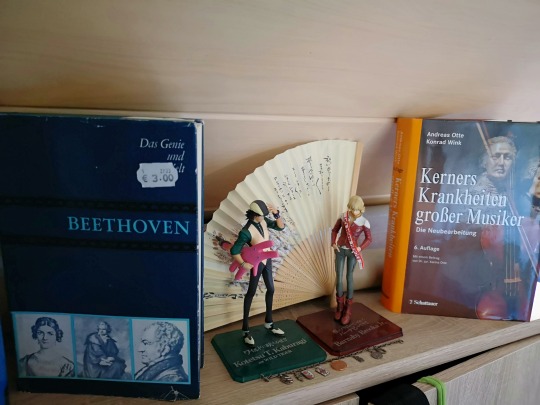

Let’s start with the bigger ones.
Kerners Krankheiten großer Musiker - You know this book already, it’s my best friend in analysing the illnesses of our loved composers.
Next to the book is my second Beethoven biography. I found it in an secondhand store for 3€ as you can see *lol* I need to erase the price tag, but I don’t want to wreck the Cover, more than it already is.
On the other picture you see the biggest book. It’s to big for the closet and not on the first picture. It’s a book about Musician, Instruments and Events. With many pictures and most of them are very funny xD

Here we have a book about symphonies, concertos and overtures. It’s a book that I mostly use for Wagner’s Octave (If I continue someday °^°)
Then there is Beethoven, Wagner and Salieri. Next is The life of George Sand, because I like to know more about her^^
And my beloved Schubert biographie.
The small book next is a 1935 biography from Bach. Next is Liszt (the best biography I read so far!)
My second biography from Schubert it’s from 1941. I’m very interested in reading this one~
My small ones from Dvořák, Tchaikovsky and Mozart. And the last one on this picture is Chopin.

Here is the last picture. Let’s start with Cosima. Next to her is my third Schubert biography (*lol* No ... I’m not a fan or something xD)
Next are Love Letters from great/famous Woman and Love Letters from great/famous men.
The next books are novels, the first one is Schubert, the second Liszt and the third Beethoven.
“... crazy about music“ is a book about the childhood from some of the composers. It’s very interesting. A book especially for the childhood is great and I like the writing ... it’s written for children or teenagers and easy to understand. I like it xD
George Sands novel Lucrezia Floriani. I talked about this novel in one of my postings about Chopin. It’s the novel where George Sand wrote about her life with Chopin - without noticing it. I read a few chapters and yeah ... I get why Chopins friends were offended ...^^
The last one is a book from 1911. It’s name is “Franz Liszt and the women” ... A book about the women in Liszt’s life.
That’s all for now!
If there is something you wanna know, ask! My computer is online most of the time and I’m here every now and then^^
Let’s talk!
#book#books#biography#Wagner#Mozart#Beethoven#schubert#Chopin#george sand#cosima#liszt#Tschaikovsky#dvorak#salieri#and more
13 notes
·
View notes
Text
Salieri and the old spinet
A small and funny anecdote about Salieri~

There was a spinet in the theater that was in a desolate condition, that had not even kept its tune for a period of rehearsal, had broken keels, failed feathers, and yet was not replaced by a better one.
One day Salieri "felt like finally putting a stop to the stinginess or negligence of the theater entrepreneur, he opened the spinet completely, put a chair close to it, climbed on the chair, and jumped in the spinet. In the evening was opera, the spinet was brought to the orchestra, one hour before the beginning of the performance came the tuner, and opened it. - Mercy! - he cried and sank back to his chair. Almost all strings were torn off and the resonant arc was smashed. "Some devil must have jumped in." - "the good man advises close," thought Silieri, silently standing there. Which no one had a suspicion on. But was getting cold feets, until he heard the master say: "Be that as it may, thank Heaven that the impresario is finally forced to make a new instrument." And so it happened."

40 notes
·
View notes
Text
Lisztomania
Before I tell you about what happened after Liszt’s death, I feel the urgent need to tell you about the Lisztomania:
Franz Liszt was a superstar, a genius, a European celebrity, in short: an absolute exception. Already as a prodigy he fascinated his audience in Vienna, Paris and London. In later years he traveled all over Europe and drove his career to dizzying heights. The then "Yellow Press" - in the 19th century people referred to "bunte Blättern” (colorful pages) - reported in detail about his concerts and even more details about his many caprices, which additionally fueled the Liszt fever. The excitement he created with his performances became delirious, and Franz Liszt was also a projection screen for erotic fantasies and secret longings.

In early November 1841, Liszt set off on another tour of Germany. Shortly before Christmas he arrived in Berlin, where he gave over 20 frenetically celebrated concerts over the next two months. Already for his first appearance in the Singakademie, appeared King Friedrich Wilhelm IV. accompanied by various Prussian princes and princesses. Colleagues like Felix Mendelssohn Bartholdy, Gaspare Spontini and Giacomo Meyerbeer also honored Franz. "Since Paganini I have not heard such a master". noted Karl August Varnhagen von Ense in his diary after this evening.
The news of Liszt's sensational debut spread like wildfire. Now there was a dynamic that should provide some surprises even for the pianist spoiled for success. "Berlin is not crazy, - it has become foolish", recalled the doctor Adalbert Cohenfeld: "Liszt was fetish, he was brought serenades, a lady kneeled before him and asked him to kiss his fingertips, - another has embraced him in the auditorium publice, - a third woman has poured the remnant from his teacup into her bottle, hundreds have worn gloves with his picture, many have lost their minds over him, all have wanted to lose him, an art dealer has glass pastes made his portrait and sold it as jewelry, thousands have paid for his favor and his money and begged respectively - but that's all still nothing, folly has never celebrated a greater triumph!"
There were ladies who completely forgot themselves, their family and their good nursery to be near their god. A contemporary witness recalls: "Yes, on one occasion a lady had conquered a cigar half-smoked by Liszt and smoked it with conceited delight despite repeated vomiting." Baronesses and countesses got their hands dirty when it came to getting hold of a glass or handkerchief used by Liszt. Hard to believe: All this really happened.

The priestly robes made Liszt for some women even more desirable. Ferdinand Gregorovius: "Countess Tolstoy yesterday told me that an American living here framed the cover of a chair on which Liszt sat and hung it on the wall." When Liszt took part in the Roman premiere of his Dante Symphony at the end of February 1866, the ecstasy knew no bounds. "He reaped even as Abbé a nocturnal summer of homage," said Gregorovius. "The ladies of Paradise showered him with flowers from above, and Mrs. L. nearly slain him with a large laurel wreath."
There, too, the Abbé found no peace, if we can belief that his pupil Olga Janina, is saying the truth: "The foreigners who populated Rome in November knocked at the gate of S. Francesca Romana, they wanted to visit Liszt, like you visit a giraffe at the zoo, using the natural friendliness of his reception to steal everything that was lying around somewhere, down to the bits of paper he used to wipe his feathers. Others asked him for his photograph with dedication and the bravest asked him to play the "Erlkönig" or the "Invitation to Dance." And you just had to watch the English people, as he played, they lined up in a row behind him and pulled him with the help of tweezers single hair out, especially gladly they chose the silver strands.If one had his hair collection together, she wrapped them in a paper and left her place to the next one. Liszt, absorbed in his music, either felt nothing or did not want to be disturbed by such a trifle."

Liszt was adored by his female fans like an idol; he was a kind of "pop star," whose glorification - as in the wild 1840s - often drove grotesque flowers. Berthold Kellermann was able to report that once even admirers secretly sneaked into Liszt's bedroom and steal stale washing water from a bowl. Bottled in small vials, they carried the precious elixir on their breast.
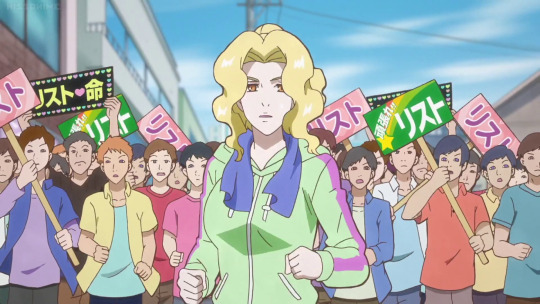
Crazy, right?
What do you think?^^
51 notes
·
View notes
Text
My ClassicaLoid Schubert Cosplay (Part 2)
My cosplay is slowly coming to an end! ~ The last weeks were stressful, because of the sewing - I’m always scared to never get anything finished in time, that at some point I get fully hooked and only work on these one thing ... In 12 Days I need to be finished! I’m very confident. Let me show you!~
I tried my best to make good pictures, but my mobile phone broke and my tablet is not able to make one clear picture °^° ... I’m sorry~

That’s how I work! xD I'm a chaotic creative^^
Let’s start with the vest.



The only thing that is fully finished. I like it very much and it lookes great. Here an there are some small mistakes, but nevermind xD I hope nobody will notice. The pics are from befor I finished it, I don’t have a final picture. I want to wait till everything is ready to wear!
Next are the trousers!


The trousers were are big Challenge. The first attempt was a failure, but the second is nearly finished! I’m very happy, because it looks nice and it was so much work, till now~ I need to make buttonholes and the waistband till it’s ready to wear! (And yeah, I need to remove the threads xD)
Last but not least, the Jacket!

These yellow monstrum was stressing me with it’s sleeves ... I hate sewing sleeves xD But I somehow managed it, after 4 days! Now everything I need to do is the collar and maybe the pockets ... I’m not sure if I make them ...
And the last thing that is missing, the wig! I will make it next week. I hope to get everything done next week, then I show you some pictures with me as Bertel~
Stay tuned!
25 notes
·
View notes
Text
Beethoven’s kiss of consecration
I’m sorry for the long wait. The weather is nice and there is so much to do, that I took a little time out, but I try to post at least once a week. I’m almost finish with the Liszt biography, next my friend suggested Salieri. Are you interested in the other Composers, too? I hope so. Because I like to post more things.
Let’s talk about the short monologue from Beethoven in Season 1 in Episode 3: Cho-chan and Lisz-chan!

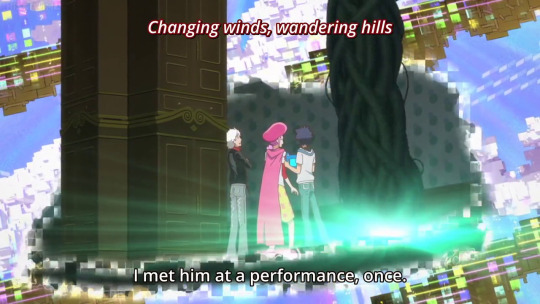
When Franz entered the podium a few months later - on April 13, 1823 - in the small Redoutensaal of the Hofburg, his young career was at a crossroads. The program sheet recorded the usual potpourri of orchestral, piano and vocal music. The concert ended with a free fantasy on a subject Liszt asked from the audience. Now began the legend: allegedly no one less than Ludwig van Beethoven have given the cue. The 53-year-old master got up after the improvisation and kissed the eleven-year-old performer on the forehead and wishing him health, happiness and success. The story of Beethoven's " kiss of consecration " is beautiful - but probably not true. There is no valid evidence that the utterly deaf composer has attended the concert.
Also for another version, according to Franz Liszt, where he and his teacher Czerny should have visited Beethoven at home, it's not documented first hand.
In 1875, Liszt gave the following oral account to his pupil Ilka Horowitz - 'I was about eleven years of age when my venerated teacher Czerny took me to Beethoven. He had told the latter about me a long time before, and had begged him to listen to me play some time. Yet Beethoven had such a repugnance to infant prodigies that he had always violently objected to receiving me. Finally, however, he allowed himself to be persuaded by the indefatigable Czerny, and in the end cried impatiently. "In God's name, then, bring me the young Turk!" It was ten o'clock in the morning when we entered the two small rooms in the Schwarzspanierhaus (Liszt made a mistake in the address, since in April 1823 Beethoven was living at Oberepfarrgasse 60, Kothgasse) which Beethoven occupied; I somewhat shyly, Czerny amiably encouraging me. Beethoven was working at a long, narrow table by the window. He looked gloomily at us for a time, said a few brief words to Czerny and remained silent when my kind teacher beckoned me to the piano. I first played a short piece by Ries. When I had finished Beethoven asked me whether I could play a Bach fugue. I chose the C minor Fugue from the Well Tempered Clavier. "And could you also transpose the Fugue at once into another key?" Beethoven asked me. Fortunately I was able to do so. After my closing chord I glanced up. The great Master's darkly glowing gaze lay piercingly upon me. Yet suddenly a gentle smile passed over the gloomy features, and Beethoven came quite close to me, stooped down, put his hand on my head, and stroked my hair several times." A devil of a fellow," he whispered, "a regular young Turk!" Suddenly I felt quite brave. "May I play something of yours now?" I boldly asked. Beethoven smiled and nodded. I played the first movement of the C major Concerto. When I had concluded Beethoven caught hold of me with both hands, kissed me on the forehead and said gently. "Go! You are one of the fortunate ones! For you will give joy and happiness to many other people! There is nothing better or finer!".' Liszt told the preceding in a tone of deepest emotion, with tears in his eyes, and a warm note of happiness sounded in the simple tale. For a brief space he was silent and then said. 'This event in my life has remained my greatest pride - the palladium of my whole career as an artist I tell it but very seldom and - only to good friends!'
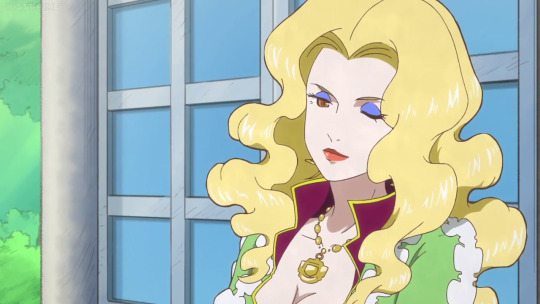
Beethoven was already completely deaf when Liszt took lessons from Carl Czerny in Vienna. He had no point in attending concerts of so-called "child prodigies", and was also absent from the Liszt concert in 1823 in Vienna.
Beethoven is not telling the truth here!^^~
What do you think?
13 notes
·
View notes
Text
Liszt vs Thalberg in Episode 35: Liszt Vs. Risuto Bell of Destiny
Puh ~ There was so much to do this week, that I don’t had the time to post ... but now I finally be able to talk about Liszt's and Thalberg's duel!
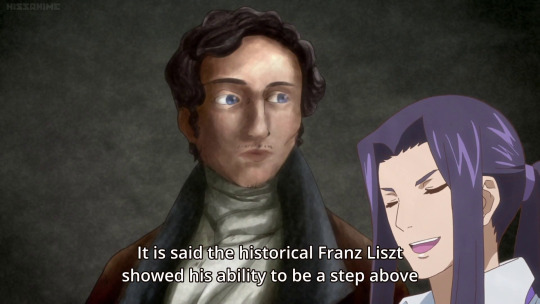
Sigismund Thalberg, a pianist born in 1812, first performed in mid-November 1835 in a private concert in Paris. The effect must have been immense even in that small setting. When Thalberg played in front of a large audience at the Conservatory in Paris at the end of January, the reviews were amazing. In mid-April he performed in the Théâtre Italy, and again the journals were full of praise. The flawless technique, the tasteful musicianship, the aristocratic appearance - everywhere the Austrian was celebrated as a brilliant artist. Liszt responded to these anthems visibly irritated.
"Tell me if it's true, that he sent you a concert ticket without knowing you." It was of lesser importance whether Madame Liszt had actually received an invitation from Thalberg. Alone the rumor was for Franz as a kind of challenge. Somebody was poaching in his territory - he could not put up with it.

Franz Liszt wanted to travel immediately to Paris and pick up the gauntlet. Alone: Marie d'Agoult was against it. Franz, as she wished, has to deal with serious matters in the seclusion of Switzerland. In the dispute with Thalberg, she probably saw a sheer waste of time. "At first I do not have the slightest desire to go to Paris at the moment," he assured his partner. "The two or three people whom I might have met with a certain pleasure at other times, have become highly antipathetic and foreign to me." After all, Thalberg has already left the city. "Oh, since this temptation is over and done with, I want to admit without further ado that for two or three days I had an unrestrained desire to travel to Paris and to join the Thalberg concert on the day I arrived. I would like to applaud him and shout Bravo because now I feel something higher, beating in my chest."

Liszt could have finished the letter at this point. But his words were only friendly banter - in fact, he desperately wanted to travel to Paris. In the course of his epistle, he gave some good reasons to help make the journey tasty for the critical Marie. He had to meet with the piano maker Érard, he had to look in his music collection for specific works, it was to prepare publishing business and so on. He also hypocritically offered to do some errands for Marie. "Be that as it may," he continued, "two things are certain: 1. I will not leave without you formally commanding me, and you know what I mean by that 2. I will not stay there for more than four or five days at any rate, I certainly do not think of being allowed to be heard there publicly or privately, as long as Thalberg was there."
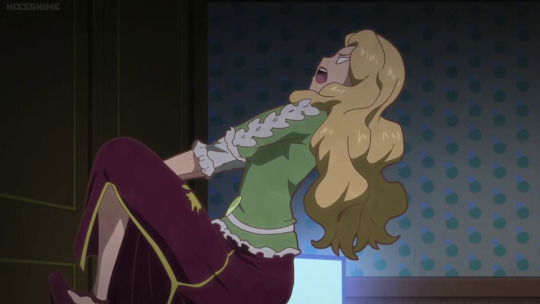
Liszt's verbally requested command was missing - Marie did not want to do that favor for him. Uncertain how he should react, he fell to the other extreme. "I will definitely, irrevocably, not travel to Paris," he promised on May 1. "Now, the Archangel Michael and Satan himself could not make me go." But that was just clever voice acrobatics. Liszt was seething, and the Thalberg affair did not leave him in peace. The breakthrough in this silly back and forth came only when Marie visited her partner for about a week in Lyon. At this time Franz could evidently convince her of the correctness of the trip to the Seine. Liszt arrived in Paris on May 13, 1836. Just five days later he was in front of an exclusive audience in the salons Érard to hear. In this and another concert on May 28, he mainly played his own works, which were created in Geneva and which he now wanted to make public. Liszt could celebrate a real comeback. The performances were received enthusiastically, his recent comps impressed, and as a virtuoso he was en vogue again. The showdown with Sigismund Thalberg was imminent.

A few months later, Marie and Liszt came to Paris together, Franz wanted to continue his successes from the spring. At that time - beginning of 1837 - Franz Liszt made a fatal mistake. An article on Sigismund Thalberg was published in the Revue et Gazette musicale de Paris on January 8, 1837; the author is named Franz Liszt. Ostensibly it was about a discussion of Thalberg's Grande Fantasia (op. 22), but de facto the article presented a slanderous account with the rival. “Although Paris is one of the leading cultural centers in Europe”, Liszt began, “but one should not infer from it the judgment of the French. The gallantry of the French language and the tendency of the French to quackery and the foam brawl meant that certain artistic achievements would be completely misrepresented.” As evidence for this crude thesis, he used Sigismund Thalberg. The journals would have stylized its Paris debut to a major event, but in truth there was nothing to it. The compositions of this gentleman are humbug and could not even satisfy the entertainment needs of the common audience. Liszt did not even step away from personal slurs when he chatted about the court jesterism of bygone days in connection with the Austrian court pianist Thalberg. All in all, that was a shabby and lunatic Suada. Between the sentences hid nothing more than boundless envy, paired with injured vanity.
This was also recognized by the reviewers of the other music magazines. "Oh, if only someone other than Mr. Liszt would have said it!" Blasphemed the Allgemeine musikalische Zeitung (General musical newspaper) - and hit the nail on the head. Because: Liszt complained something to which he owed his own success. He cursed the French good manners - and yet was himself his child. He expressed himself in doubtful generalities about the French language - and preferred it all his life. He objected to the hype surrounding Thalberg - and masterfully mastered these mechanisms. What many readers could not know: The article was a joint work of Marie d'Agoult and Franz Liszt.

In the spring of 1837 Thalberg returned to Paris, and he and Liszt concerted against each within a few weeks to a certain extent. Franz participated in four "séances musicales", Thalberg first played in the Salons Zimmermann, where Liszt first heard him. In addition, a big concert was planned at the conservatory. Suddenly, however, there were postponements, to which Franz reacted visibly annoyed: "Thalberg's concert is postponed, it is said, my God, that is stupid, this idiot is beginning to bore me violently, but one fine evening will probably put an end to his play." It was followed by other performances by the two pianists. Allegedly, Franz is said to have even suggested to his rival a joint concert on two pianos that Thalberg - again allegedly - rejected with the smug side blow "I do not like to be accompanied".

The showdown took place on 31st March in the Salon of Princess Cristina Belgiojoso. The Madame had invited to a charity concert. In addition to Liszt and Thalberg other artists participated, but the appearance of the piano stars was undoubtedly the highlight of the evening. Both began with an opera paraphrase: Franz played his Divertimento sur une cavatine de Pacini - a highly virtuoso showpiece of a melody from Giovanni Pacini's opera Niobe -, Thalberg chose his op. 33: Fantaisie sur des thèmes de l'opéra Moise de Rossini. The contest ended - how could it be otherwise - in a draw. The performers were equally acclaimed, and the press representatives present in their journals - with insignificant deviations - a stalemate. The princess Belgiojoso proclaimed both gentlemen victors, the dispute was thus considered settled. It was that easy.

Although Franz Liszt renounced from rough attacks, nevertheless, he responded for a long time piqued when the speech came to Sigismund Thalberg. "I stand with Thalberg excellent," he blasphemed after meeting in Vienna in the spring of 1838. "Yesterday he said to me naively and good-naturedly: 'Compared to you I had in Vienna only respectful successes.' A pretty and true word."
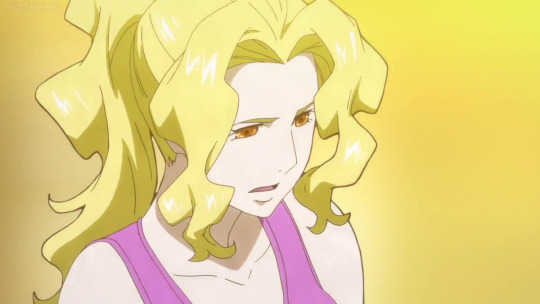
There is a second Story in Chopin’s biographie ... I’m not sure which is true, but I like both storys, that’s why I like to tell you second one, too. Judge for yourself!^^
The extravagant Italian princess and freedom fighter Cristina Belgiojoso, currently living in exile in Paris, where she held a prestigious position in society, had asked Liszt, Thalberg, Pixis, Chopin, Czerny and Herz to help her collecting money for Italian patriots who had to flee from their homeland. In her Pompeian music room, she performed a concert in which the six pianists would improvise on themes from Bellini's opera I Puritani. Although the seats cost a staggering forty francs, the room was bursting on March 30, and everyone waited anxiously for the duel, which only needed weapons to bring it to a deadly end.

Liszt was reported to have been overwhelming, and Heine was appalled at the impact of his performance on the audience, which was hypnotized. The princess Belgiojoso declared Liszt to be the only pianist in Europe. The victor shook his rival's hand and invited him to dinner, but so condescending that Thalberg left the city the very next morning.

Chopin had followed Thalberg's humiliation with some satisfaction, for the memory of Vienna still hurt. But the dogged bitchiness with which Liszt had cut off his competitors shocked him. According to Brzowski, he did not mince words when he reprimanded Liszt for Thalberg's departure. This behavior was typical of everything that disturbed Chopin about Liszt.
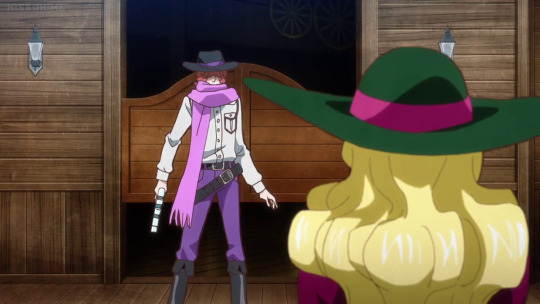
What do you think?
18 notes
·
View notes
Text
Liszt the piano killer in Episode 35: Liszt Vs. Risuto Bell of Destiny
Yay! There are so many things in only this one small episode^^ Today I like to speak about the “three Piano's”-Story. Next time I last but not least like to talk about Liszt and Thalberg. Then we have everything from this Episode. The story’s are so much fun! I hope you like it, too~
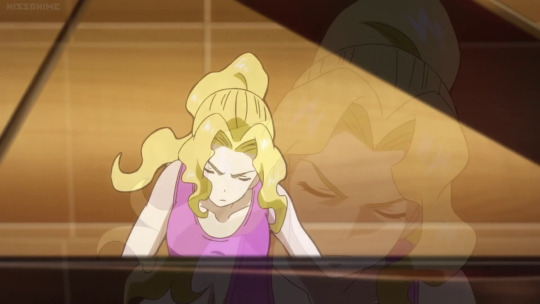
We are lucky that Liszt stayed at the same hotel as the pianist Friedrich Wieck and his 18-year-old daughter Clara - She later became Schumann's wife. Because the girl's diary shows what tremendous stir provoked Liszt's visit to Vienna. "We heard Liszt," she noted after a private concert in the workshop of a piano maker. "He is incomparable with any player - he stands alone, he excites fears and wonders, he is a very gracious artist, his appearance on the piano is indescribable - he is original." In Carl Maria von Weber's concert piece Liszt reached so hard into the keys so that three strings tore. Franz was unimpressed, said Miss Clara admiringly - "he must be used to that". It happened again and again that pianos gave up under Liszt's fingers. This was mainly due to the weak construction of many instruments of that time, but of course it made a big impression when he once again played a piano in the ground. That was part of his myth. At the first official concert on April 18, three grand pianos were on stage - "all three smashed, but all ingenious - the applause tremendous - the artist unabashed and amiable - everything new, unheard of - only Liszt."

In the biography from Chopin there was a Quote that I like very much, because I can picture Liszt very well:
"The inspiration comes in, the gaze of the god Liszt opens, his hair trembles, his fingers bend and hammer in a rush on the keys. He plays with his hands, with his elbows, his chin, his nose. Everything that can pounding on it ... 'Great,' shouts the audience. 'The repair will cost me twenty francs!' moans the goddess of the house Marie d'Agoult."

Some interesting information about Paganini? Here we go:
There were years when the Italian violinist Niccolò Paganini scared his audience. The performances of the so-called devil's violinist were as famous as they were notorious. When Paganini, born in Genoa in 1782, entered the podium dressed in black, not a few believed he saw the devil. The syphilis had attacked his larynx and destroyed his jaw, his teeth had fallen out, his eyes were deep in his skull. Drawn by illness, he could only move slowly.

When he returned to the Seine in spring of 1832, Franz Liszt was also in the audience. What Franz heard on that April 20 became a central experience of his life. It was Paganini's ecstatically increased virtuosity that overwhelmed him. He saw a musician who overcame all known technical hurdles, who gave his instrument hitherto unprecedented possibilities of expression, indeed, who seemed to reinvent the violin playing to a certain extent. Liszt suddenly realized that despite his brilliant technique, he had always moved within the limits of the Czerny school. He wanted to exceed this now. The virtuosity was not the goal, it was the way to open the piano a cosmos of completely new sensations. Franz immediately set to work: "For fourteen days, my mind and my fingers work like damned," he informed a friend. "In addition, I practice four to five hours of thirds, sixths, octaves, tremolos, repetitions, cadences, etc. .. Ah, if I'm not crazy, you'll find an artist in me! Yes, an artist, to your taste, like he must be today!"

Following the observations of Auguste Boissier, whose daughter Valérie took lessons from Liszt in 1832, we know the details of his studies. Liszt proceeded from the complete emancipation of the fingers, the pianist had an ensemble of ten equal fingers. Anatomical weaknesses have to be removed in a way: "The little one, the fourth and the third are the worst, they have to be given special attention, but the others have to be practiced as well, so he claims that every finger is practiced daily for a quarter of an hour by lifting it very high and then setting it down with the bale. Another practice is to perform the trills while the non-trilling fingers remain." The fingers must be extremely flexible and supple. He told Valérie "to do the various exercises for at least three hours a day, practice the various scales in octaves, thirds, as well as the arpeggios of each form, the trills, chords, in short everything that belongs to this study." This was usually very boring, Liszt had to admit, so Mademoiselle Boissier may open a book during the exercises. "For hours, he drags it on and reads to talk, sinking into his reading while practicing his fingers at the same time."
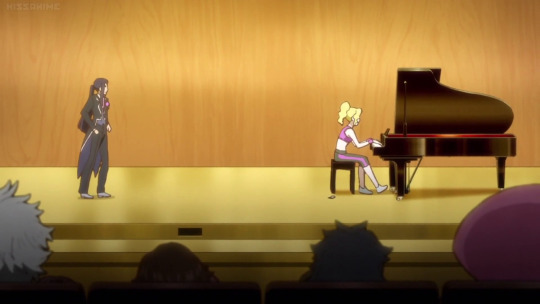
A little excursion about the piano:
Sébastien Érard, born in 1752, and his two years older brother Jean-Baptiste, ran the piano factory Érard Frères near the Seine and were considered brilliant piano designers. Among its numerous developments, the invention of the so-called double-trigger piano mechanics stands out especially. This construction made it possible for the hammers to fall back into their original position immediately after touching the piano string. Thanks to Érards creation, the satisfying performance of extremely fast sound sequences became possible, which inspired Liszt significantly.
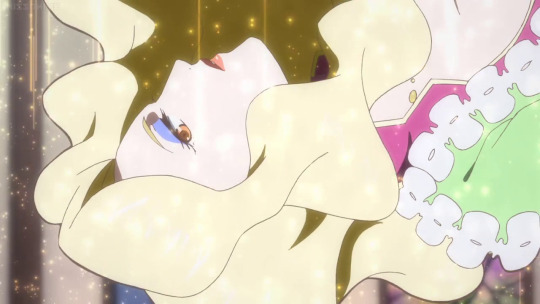
What do you think?^^
47 notes
·
View notes
Text
Wagner’s Octave Episode 2
Second Episode, a little later than planned, but not to late~ *lol* Have fun with “Haydn the detective!”

In the kitchen.
-Salieri- Is standing by the sink. Shake his hands dry. "Where is Haydn? I haven't seen him in weeks."
-Brahms- Sitting in the rocking chair and smoking. Shrugs. "He said something about a good perusal. Then he disappeared."
Camera movement across the hall. Strauss Junior is standing in front of the bathroom door. In the window of the door hangs a sign saying "detective office J. Haydn".
-Strauss junior- "Haydn! You can not sit in the bathroom forever! We want to wash ourselves!"
-Haydn- Through the door "Use the other bathroom. This is an office!"
-Strauss Junior- "In the other bathroom, the water does not drain!"
-Haydn- "If so. Then that's a problem. Come in."
The door opens. There are planks on the bathtub and in front of it a makeshift desk made up of boxes and boards. A cloth around the lamp dims the light, the window is covered with another cloth.
-Haydn- Sitting on the bath. Tap with a pen on the 'table'. "So you have a problem, my boy. Come, sit down and tell me when it started! "
-Strauss Junior- "Uh. No idea? Yesterday? Yesterday morning, I could still wash myself and Schumann has just complained that the water is not running out and he has to clean half the apartment."
-Haydn- "Very interesting. I will try to find a solution to the problem. "
-Strauss Junior- "I would know a solution ..."
-Haydn- "Shh! I'm the great detective Haydn! Leave the solution to your problems only to me!"
-Strauss Junior- "You could just ...?"
-Haydn- Pushes Strauss Junior out the door. Closes the door. "I will have solved the case until this evening!" Take out a detective Conan manga behind the tub. "I just have to look it up in my manual."
-Strauss Junior- Goes into the kitchen. "I found Haydn. He opened a detective bureau in the bathroom."
-Salieri- "He did what?"
-Brahms- Facepalm
-Salieri- "I'll talk to him about it. Before he kills someone ... and he can’t just occupy the bathroom. Especially not when the other drain is clogged." Goes to the bathroom. "Joseph?" No answer. Opens the door. Bathroom is empty. Looks around. Finds a manga. flicks through the pages.
-Haydn- Enters the bathroom. Holds a wet towel in his hands. "Toni?"
-Salieri- Looks up. "Where does the towel come from?"
-Haydn- "I'm trying to figure out the villain who blocked the drain. But the other bathroom is too wet to concentrate."
-Salieri- Gets closer to him. Checks the towel. "There are your initials on the cloth."
-Haydn- Hides the towel behind his back. "No. Where? Which towel?"
-Salieri- "Release the bathroom. Both." Point to the manga. "What are you planning to do with a detective bureau?"
-Haydn- "Solve problems?"
-Salieri- "I think you're the biggest problem, Joseph."
-Haydn- "You will all come to me and beg for solutions of your problems!"
-Salieri- Rolled his eyes. "Clean up the mess you made. Immediately."
-Haydn- "But if there are no problems, you do not have to solve any problems."
-Salieri- "Clean it up before Brahms hears about the matter."
-Haydn- "Actually, I have no idea what I did ..."
-Salieri- "Then come up with something." Goes.
-Haydn- Sighs. Begins to clean up the bathroom.
Ein Schrei in der Ferne.
-Strauss- Shocked. "Schumann iis dead!"
-Schumann- Lying on the floor. Sobbing. "My limited Schubert Lieder Collection is missing."
-Salieri- "Be a little faster Joseph!"
-Haydn- sigh. "I'm sure Wolfgang would undersand me more ..."
Otowakan, living room
-Mozart- Sneezes

6 notes
·
View notes
Text
Addition to “The flashbacks” in Episode 35: Liszt Vs. Risuto Bell of Destiny
Sorry, I was wrong ... not totally, but a little^^ ... I found the story about the first flashback from Liszt, yesterday. I thought it was before he med Caroline, but it’s after he lost her. The story is after Liszt saw Paganini’s concert ... That’s the moment where Liszt started to “play” with his audience.
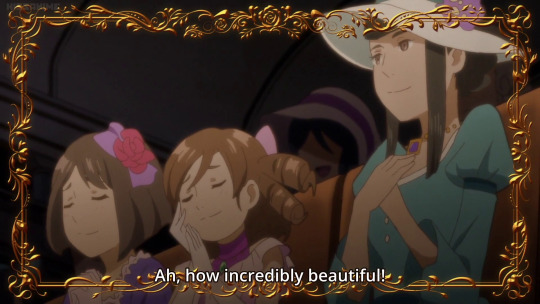
Franz staged himself. It all started with the all-black clothes, which lent something puzzling to his slender, pale-faced figure. The shoulder-length hair, which always fell into his face during his piano play and which he put just as playful behind the ears, became his trademark. The limit to the showmanship and the affected fuss, the mannered expression and the playfulness was naturally flowing. He offered his audience an impressive show that had only one content: Franz Liszt.
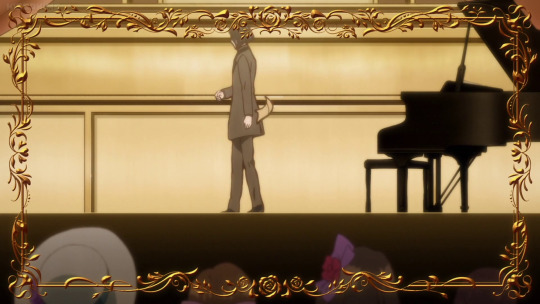
"And yet, how tremendous and how shocking was his mere appearance!" noted Heinrich Heine with biting mockery. “How impetuous the applause was. Bouquets were thrown at his feet, too! It was a sublime sight, as the triumphant let the flower-rain upon him with calmness, and finally, with a gracious smile, he picked a red camelia from a bouquet, and stuck to his breast." Heine said that he noticed that there were ladies who fainted, "and how once two Hungarian countesses, threw themselves to the ground and bawled bloody, to catch his handkerchief!"

That’s the story!^^
What do you think?
22 notes
·
View notes
Text
The flashbacks in Episode 35: Liszt vs. Risuto Bell of Destiny
I totally forgot these scene was there ... till this morning. I wanted to post a funny anecdote from Liszt and was searching for a scene where she is reading a book. Than I found this flashback. I read the story yesterday. *lol* I need to post it now!

The little Liszt was now a top earner. On February 8, 1824, he played a concert that earned a net profit of 2000 francs. Some years before, Adam had to sell his gold watch to buy his son a piano, and now he juggled with sums that he never had before. A month later, Adam delivered his masterpiece. Thanks to the intercession of Marie Caroline Ferdinande Louise de Bourbon - the Duchesse de Berry - who was downright infatuated with Franz, Adam received the Théâtre Italy to use for free. There he organized a concert on March 7th on his own account. He even hired an orchestra that accompanied his son in a piano concert with pieces from Johann Nepomuk Hummel and Carl Czerny. After the deduction of all expenses Liszt had a net profit of 4711 francs.

This concert was not only because of the financial success in the Liszt annals. Adam spoke of a "public triumph" for his son: "As soon as he ended his performing the applaud had almost no end, after each passage the enthusiasm expressed itself in the most vivid amazement, after each piece he was called 2 and 3 times and applauded. The gentlemen of the orchestra beat the violin bow mercilessly on the backs of their contrabasses, violoncellos, prats and violins, the flutist took their voices to their aid, and so everything was indescribably delighted." What is unimaginable these days was one of the usages; They applauded during the piece at or after particularly virtuoso sections. Franz obviously gave his audience enough reason to do so.

Finally, Martainville commented on the concert: "To convey an idea of the impressive accomplishment that the listeners could experience here, I would like to briefly describe the effect of this extraordinary artist's performance even on the orchestra's musicians, the Orchestra of the Orchestra Théâtre Italy, the best orchestra of France, if not of Europe: with eyes, ears and soul they hung on the magical instrument of the young virtuoso and forgot for a moment perfectly that they are also actors in this concert, so that all instruments missed an insert. The audience proved by his laughter and applause that it benevolently forgave them this little inattention, which is perhaps the most flattering tribute ever given to the little prodigy's talent. Lively applause and repeated cheers made the hall shake; Acclamations of approval and enthusiasm seemed never to end; and the tender hands of the pretty woman applauded tirelessly. The happy child thanked laughing."

"At that time there were everywhere bad concerts for free in Paris," Liszt told a student decades later. That too was not his thing. Franz retired. But since he had somehow to finance his and his mother's livelihood - "The capital left by father was very small" - he began to teach piano and harmony lessons. He came from the rain in the eaves. Franz was really tired of preforming in the salons of high society, he now had to teach the daughters of the gentlemen the basics of music. Mostly he visited his students at home, but at times he also taught at a girls' school.
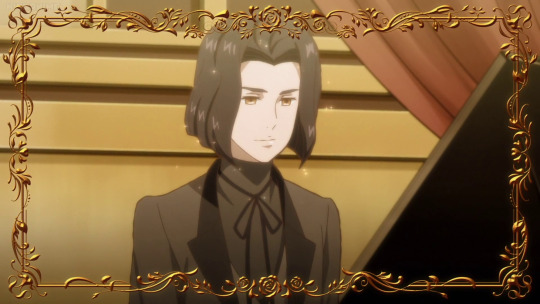
Franz was obviously a sought teacher. He taught "every day from 8:30 in the morning until 10 in the evening, I hardly have time to breathe." From one place to the next, he often had to walk for miles. If he came home at night, his mother was already asleep. Not to wake her up, he often sat in the stairwell, where he fell asleep with exhaustion and was found the next morning. He began to smoke and drink, ate irregularly and slept not enough. At that time, Liszt appropriated the unhealthy way of life, which he maintained until the end.
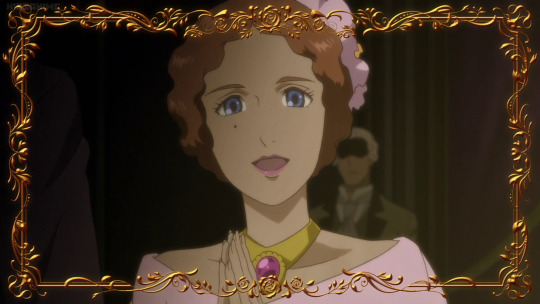
Franz's Parisian student included the 17-year-old daughter of French Minister of Commerce Pierre de Saint-Cricq. Mademoiselle Caroline enjoyed the lessons with her revered teacher, also Liszt was attracted to the pretty young woman. They fell in love with each other. Caroline's mother, Jeanne, supported this amoure, not her husband. When Madame Jeanne died unexpectedly on 1 July 1828, the Comte de Saint-Cricq put an end to the love affair and made it clear to Liszt that he wished for his daughter to have a befitting relationship. In other words, as a bourgeois musician he is not equal to the family de Saint-Cricq. Caroline had to marry the Count Bertrand d'Artigaux against her will and move with him to the southern French city Pau.

The unromantic end of this first romantic love plunged Franz and Caroline into despair. As the Mademoiselle tears into her fate, Liszt felt badly hurt in his pride and honor. This unfriendly rejection made him painfully aware that he was only respected and admired as a prodigy child, concert pianists, and music teacher -but not accepted as a peer-to-peer partner. Once again Franz felt like a musical amuseur, even demoted to a juggler. He was allowed to perform in the houses of the fine society, but had to leave them through the service gate. When it mattered, he was not one of them.
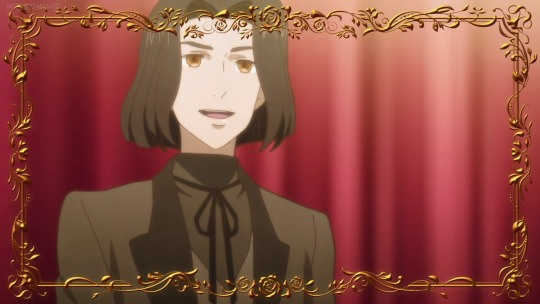
What do you think?
Most of them had a tragic love story ... It’s so sad ...
I don't described the concert in the first flashback because I think they refer to the popularity in general and that’s why I chose this concert. It’s well written and I like it^^
43 notes
·
View notes
Text
Liszt and the comet
I’m reading a Franz Liszt biography at the moment, and I love it ... It’s well written and very informative. And I'm still at the beginnig of Liszt's life. I will start with Liszt birth and not with his death (like I usual do *lol*).
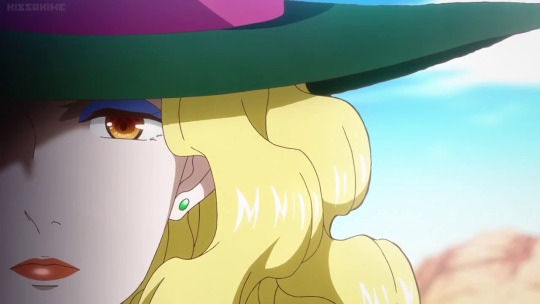
On March 25, the French astronomer Honoré Flaugergues accidentally discovered a celestial body that became famous as the "Great Comet of 1811" and was visible to the mere eye for a total of nine months. It’s gigantic shell even surpassed the size of the sun. The people were electrified by the eerily beautiful spectacle of nature. Not a few attribute the comet to have uncanny forces. If there was a heavy thunderstorm somewhere, it was the fault of the commentary. "When the great and magnificent Comet was seen in the spring, many were filled with fear and terror and prophesied a bloody, atrocious war, which was followed by the overthrow of all existence," recalled the poet Hoffmann von Fallersleben. "We children enjoyed each evening its glorious splendor and saw in him more the herald of a warm summer, which would bring us long sunny days for our games."

The summer of 1811 was indeed very hot, which was also attributed to the comet. And when the grapes harvest turned out to be very lush and high-quality in the fall, people started talking about "comet wine".

Obscure fortune-tellers, prophets and astrologers were in high spirits, as was the case in the Hungarian village of Raiding. There, the 23-year-old Anna Liszt expected her childbirth. When Gypsies came to the city and prophesied the birth of an important person, Ms. Anna saw in it a sign of heaven. That's what the legend says.
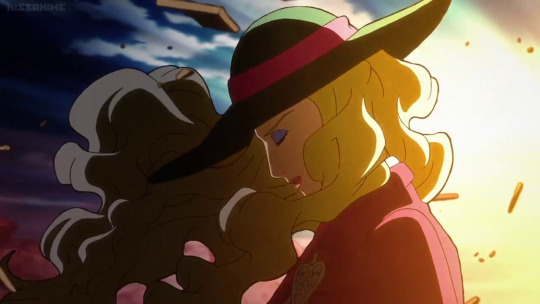
On October 22, 1811, on that Tuesday, Franz Liszt was born in Raiding. The boy was the only child of the spouses Adam and Anna Liszt, who had married only nine months earlier - on January 11th. We are in the former Kingdom of Hungary, a country with a long and varied history: until 1526 it was independent, then large parts fell to the Turks, since 1699 Hungary belonged completely to the Habsburg Empire. From then on, the official and teaching language was German, which meant that entire generations of Hungarians never learned their native language. So the Liszt family, too. Of course, people understood themselves as Hungarians - and almost no-one spoke a single word of Hungarian.

By the way: Flour called in Hungarian is Liszt. It was funny to see the name on a measuring cup. xD
What do you think?^^
23 notes
·
View notes
Text
Wagner’s Octave Episode 1
My friend (rocketjo) and I are very sad that ClassicaLoid is over. I hope that they make a third season soon °^° ... but till then we try to make our own third season, with the Name: Wagner’s Octave!
We hope you like it! Feel free to help! If you have Ideas or like to make artworks, we would be very happy to see it. Send me everything!
Now enjoy Episode 1!
A kitchen. On the opposite site from the door is a large stove. In the middle is a work surface, next to the door there are cupboards. Under the window is a sink. Between the work surface and the stove weighs a rocking chair. In the rocking chair sits a older man with a flowing beard, a cigar in his mouth.
Another man in Sherlock Holmes' attire tries to get to the stove, but is held back by the man the rocking chair.
In the background plays a harp.

-Brahms- "That's my kitchen. That's my stove."
-Haydn- "I'm hungry!"
-Brahms- Stands up. The rocking chair teeters in time. Brahms stands in front of the stove, legs apart. "My stove. I cook."
-Haydn- Go to the cabinets and take a knife. Grinning wide. "I have the knife! I have the knife!"
-Brahms- "Children should not play with knives!" Brahms reaches for the knife.
-Haydn- Dodge, "I am an adult!" stumbles, "Oops ..!" and throws the knife out of the window.
-Brahms- "No! Our only knife! « Crashes to the window.
-Haydn- Put a pot on the stove. Humming.
-Brahms- "No!" Crashes to the stove. Turn off gas. Without Haydn knows it, because he searches for noodles.
-Haydn- Return to the stove with the noodle pack. "Strange ..." Keeps fingers in the water. "Why is It cold?"
-Brahms- Is sitting satisfied in his rocking chair again. Smoking.
A spindly man enters the kitchen.

-Salieri- "Is the food ready?"
-Brahms- "Haydn needs a little bit more time. If you would let me cook, we could finally eat. Get out of the way, boy." Pushes Haydn to the side, who still holds his finger in the water. Turn on the gas again. Gives fire with his cigar.
-Haydn- Still with his finger in the water. After a while. Jumps back. "OW!"
-Brahms- smirk.
-Salieri- "How long will it take?"
The harp stops.
-Brahms- “Do not be so impatient, Antonio. No one likes impatience." Sit in the rocking chair. Reads in a newspaper.
A teenager and a child enter the room.
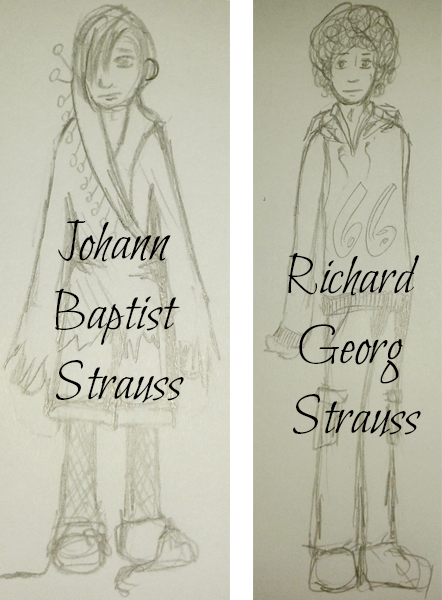
-Strauss junior- crotchety "I'm hungry."
-Strauss- "Do not act like a toddler."
-Strauss junior "But I'm starving." Looks at the kitchen clock. "I have not eaten since, er, four hours."
-Brahms- Waving his right hand and humming to himself.
-Strauss junior- Looks around. "There's boiling water!"
-Strauss- Looks at Brahms. "Why does the water boil?"
-Salieri- "There is boiling water?"
-Haydn- Looks at Brahms angry. "Why did you want to cook me?"
Another young man enters the kitchen. He hums a Schubert song, very wrong. He stops, looks into the pot.
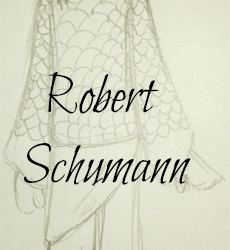
-Schumann- "Brahms, the water is boiling. If the noodles do not get into the water, there's no more."
-Brahms- Grimly. Wag his hand. Grab the air. Holds a baton in the form of a pipe.
There are voices in a secluded hallway in the Arkhe building.
-Mitsuru- "I did not know that we also have living quarters down here, great Master Bach."
-Bach- Raise his hand. "Pianissimo. Al niente! " Goes near to one of the doors, keeps his ear to the door. "Morendo ..." Looks around in confusion.
-Mitsuru- Also listen at the door. Leaning on Bach. Snores.
-Bach- Audibly annoyed. "Troppo" Opens the door. Leave the sleeping Mitsuru in the hallway.
Brahms's lullaby is playing.
-Strauss junior- Sinks asleep at the stove.
-Strauss- Yawns. Falls backwards.
-Salieri- Kneels down. Drooling in sleep.
-Haydn- Drops his face to the stove. Wake up. Staggers back. Stumbles over Salieri, falls and goes to sleep.
-Schumann- Want to turn off the gas. Fell asleep on the way, while standing.
-Brahms- Sighs satisfied. Aim his cigar. Reading the newspaper.
-Bach- "Tacet!"
-Brahms- Looks up. "Finally."
A young woman emerges behind Bach. Her eyes sparkle with amusement.

-Vivaldi- "Fine."
to be continued! If you like xD
My sketches are bad, I know *lol* They are like five minutes sketches. I wan't to make them better, but I don’t have so much time, maybe later. I don't want to paint on the computer, because I don’t have a graphic tablet and coloring with mouse is taking forever and ever ... ... I hope I can buy a graphic tablet in the near future^^~
What do you think?
10 notes
·
View notes
Text
My ClassicaLoid Schubert Cosplay (Part 1)
I’m not sure if you are interested in my own work *lol* But, I like to show it~

I know, we all know him and yeah, he is my favo! I love him~
Yesterday arrived the last part for my Cosplay *yay* Now I just have to start sewing ... *less yay*
In may is the RPC (Role Play Convention) in Cologne, that’s where my friend and I wan't to cosplay as Beethoven and Schubert. We will try to stay in character to make everyone around us insane *lool* ... But first I need to finish everything, I’m a little in panic mode~
But ... yeah ... I'm slowly making progress and I hope that everything will go smoothly, till the end.

Here is the fabric for Schuberts jacket, I wanted to use (in German we say) “Breitcord”. I don’t know the english name but it’s cord with bigger lines. The color and material is perfect. I was thinking to make Schubert's clothes as old as I can. The collar is in “Babycord” it’s cord with small lines, as you can see.

The trousers are also in “Babycord”. The brown color is perfect. It’s ... like ... ehm ... teacher color! When I was young we had old teachers, that always had brown cord trousers. Always. In summer cord shorts and in winter cord trousers. A nightmare that I never forget xD Am I alone with this trauma?

I try to make the vest from linen. It’s a good fabric and it looks very old. I’m not 100% satisfied with the color, but it’s the best I found. (And Bertel is not as picky as I am with the colors of his clothes.) That’s why I think, it’s fine xD

Now to the things that I can use without sewing *yay*
The gloves are the cheapest things from this Cosplay (Only 1€ xD). They look great. I love the glasses. I look like the original Schubert, when I wear them. It’s scary xD ... And the tights. I searched a long time to get one that looks like this. From the start I wanted tights like this. It’s old looking ... I like it. The only thing I don’t like is the color, because ist’s not white it’s a little yellowish ... in German the color is “Wollweiß” (white wool), but it matched perfect with the brown fabric, and thats great xD

The shirt is white (some cheap mens shirt *lol*). The shoes are not like Schuberts, but they look like he would wear them. That's fine with me. In shops they cost over 90€ but I got mine frome ebay for 16€ (lucky!). The tie is the only thing I’m not totally fine with. I wanted others, because I don’t like the material very much, but all the other ties had horrendous shiping costs. That’s why I will stick with them. Maybe one day I will buy better ones. At the moment I’m diligent to learn how to knot a tie~
That’s all for now. At the moment I try to make the patterns. I hope to start sewing after the Easter public holiday. Wish me luck! I know how to use a sewing mashine, but it’s a long long time ago ... I’m a little scared *lol*
I’m not sure if I use my own hair for Schubert or a wig. My hair is as messy as his hair, but dark colored and the orange color is not strong enough ... I’m not sure if a second attempt is good for my hair *lol* That’s why I bought a wig. My first and only wig, but I need to style it and I’m not sure if I can do it. I try my best, to make the out come look good *lol*
I plan to make the baton to, but first I need to finish Bertel. Stay tuned!^^
What do you think?
[Sorry for the bad pictures xD The room is to dark for my camera and I don’t like to use flashlight and my photoshop is to slow on my old computer that I don’t have the vigor to use it. I try to make the next pictures better looking.]
33 notes
·
View notes
Text
On the train
A little and funny anecdote about Tchaikovsky and his level of fear of people.
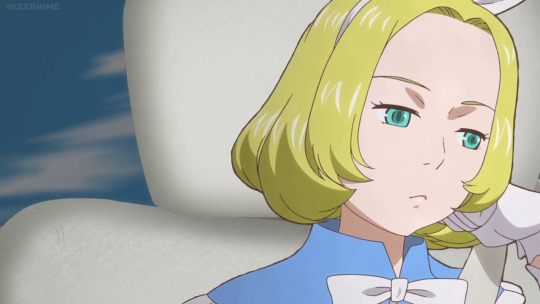
When the Russian poet Ivan Turgenev once heared that Tchaikovsky was on the same train, in another compartment. He wanted to meet him, but the shy Peter Ilyich stole himself away like a nocturnal thief and hid in the third class until the train had reached Moscow and also the last passenger had gone.

I like this short story, what do you think?^^
16 notes
·
View notes
